
The creation of the College of Science and Mathematics was approved during the 139th regular meeting of the USM Governing Board on the 12th of March 2020 held in Manila through Resolution no. 33 series of 2020. The creation of the College resulted from the splitting of the former College of Arts and Sciences into two Colleges, namely: College of Arts and Social Sciences (CASS) and the College of Science and Mathematics (CSM).
The College of Science and Mathematics at present is composed of five departments namely: the Department of Biological Sciences with its offering, the Bachelor of Science in Biology; Department of Chemistry with its offering, the Bachelor of Chemistry; Department of Development Communication with its offering, Bachelor of Science in Development Communication; Department of Mathematics and Statistics with its latest approved degree offering to start this first semester of school year 2020-2021, the Bachelor of Science in Applied Mathematics and the Department of Physics which serves as a service department.
The College of Science and Mathematics’ current location is the former CAS building including the second and third floors of the Science and Technology building.
Dr. Jonald L. Pimentel of the Department of Mathematics and Statistics and the former and last Dean of the College of Arts and Sciences before the splitting was designated by Dr. Francisco Gil N. Garcia, SUC President IV as the first Dean of the College through a Special Order No. 122 Series of 2020 that very recently took effect on May 4, 2020. The formal installation of Dr. Pimentel as the first Dean of the College was held last May 6, 2020 at the CAS lobby by the University President, Dr. Francisco Gil N. Garcia. Gracing the affair were VPAA Dr. Consuelo A. Tagaro, VPRDE Dr. Cayetano C. Pomares, VPRGES Dr. Abubakar A. Murray, CED Dean Dr. Eimer M. Estilloso and some faculty of the newly created CSM and the CASS.
The College of Arts and Sciences had its beginning in 1956 as the General Education Department (GED) mandated to respond to the needs of each student for a “broad general education that will assist each individual to develop his full potential as a human being’. Its first unit head was Dr. Donato B. Pableo from 1956 until he retired on October 21, 1974.
On October 22, 1974, the GED was headed by Prof. Filomena C. Antonio until her retirement in 1977. The GED branched-out into two departments, namely: the Education Department headed by Prof. Sergio Ramos, and the Languages and Sciences Department which became the nucleus of CAS headed by Prof. Librada C. Pableo from 1977 until her retirement in 1987.
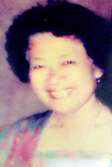
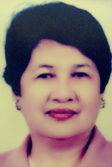
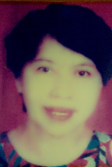
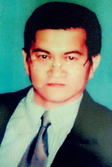
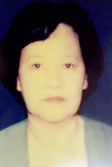
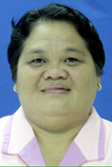
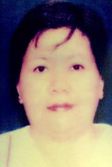
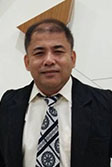
Vision
Excellence in the Arts and Sciences
Mission
Empowerment of faculty and students through quality education.
On March 13, 1978, MIT became a University. The department was converted into a college, the College of Arts and Sciences. Its first dean was Dr. Librada C. Pableo. With its conversion were the two degrees namely: Bachelor of Science in Biology and Bachelor of Science in Chemistry. Two years later, in June 1980, the Development Communication major of the Bachelor of Science in Agriculture from the College of Agriculture was transferred to CAS and became the Department of Development Communication. In June 1983, the Mathematics, Statistics and Physics departments were also transferred from the College of Engineering to CAS.
Dr. Rose Marie Bugarin came next as the Dean of CAS from 1987 to 1992. She was the second dean of the college. However, she went to USA for her post-doctoral on Environmental Studies in August 1989, Dr. Prisciliano T. Bauzon was appointed Officer-in-Charge from August 19989-August 1990. Upon returning to USM, Dr. Bugarin resumed leadership of the College from September 1990 to 1992. It was also during her leadership that the Regional Science Training Center (RSTC) was established. Then she was designated as Director of the newly established Philippine Rubber Testing Center (PRTC).
Prof. Ana L. Tomen was appointed Officer-in-Charge from April 1992 to June 30, 1992 and became the third dean of the College on July 1, 1992 up to her retirement on March 30, 1996. In 1994, the Physics Department was separated from the Mathematics, Statistics and Physics Department. In June 1995, a new degree program, Bachelor of Science in Agricultural Chemistry was offered. Upon the retirement of Dr. Tomen, Dr. Nicanora S. Sorrosa became the Officer-in-Charge from April 1, 1996 to June 30, 1996. She was concurrently the Director of the Regional Science Training Center (RSTC) at USM.
Dr. Grace G. Lopez became the fourth dean of the College from July 1, 1996 to July 21, 2002. She was designated as Supervisor of the newly established Child Care Center and at the same time the Deputy Director for Research of the University. Through the initiative of the Behavioral Sciences Department Chairperson, Dr. Prisciliano T. Bauzon, the USM Teen Center was established in 1998. The center serves and functions as a youth organization, which aims to improve and promote the total well-being of the youth.
A new course offering, Bachelor of Arts in Psychology came into being in June 1997under the Department of Behavioral Sciences. In the same year, two new graduate courses: MS Biology and MA Mathematics were also offered. These graduate courses with already existing MS Development Communication and MAT Biology were given back by the Graduate College to CAS for coordination. In November 2000, another graduate course was offered, MA in Language Teaching (MALT) under the Department of English Language and Literature.
The 14-month crash course program on Accelerated Integrated Teacher Training on Cultural Communities (AITTCC) was offered on October 20, 1999 to December 20, 2000. It was designed to provide an accelerated teacher training to qualified dependents of rebel returnees with the Southern Development Authority as funding agency.
The changing educational environment called for undergoing the accreditation process, which the College had undergone Level I accreditation on November 8-10, 1996 and Level II on September 23-25, 1998. The College continues to operate in the direction of AACCUP standards to pursue quality education. It was also guided and inspired by the vision and mission of the University from which the goals of the College emanate.
The updating of the College to meet the standard is a tedious process. A consultancy visit was done on July 19, 2001 to assess and find out how far the College had complied with the accreditors’ recommendations and its readiness for resurvey. The first resurvey was done last November 21-23, 2001.
On July 26, 2002, there was a turn-over ceremony of the CAS leadership to Dr. Anita B. Tacardon, the fifth CAS Dean, effective August 1, 2002. The challenge to meet the standards of a quality college in accordance with the AACCUP criteria is the focus of the preparations for the second resurvey in 2006.
A tremendous face lifting of the 25-year old CAS building was made. Classrooms, laboratory rooms, comfort rooms, spacious offices were constructed, renovated and improved. Additional facilities were acquired to serve the interest of the students, e.g. drinking fountains, well-ventilated classrooms, well- equipped audio visual room, student park, and sports area, among others.
USM is privileged to have been chosen by CHED to implement the Expanded Tertiary Educational Equivalency Accreditation Program (ETEEAP). The college proposed the BS DevCom under this program and was endorsed by the Academic Council in September 2003 to the Board of Regents which the later approved. This is to cater primarily the non-degree holders who are already practitioners but cannot compete for promotion in their workplace.
In the same year, the Social Action Center for Community Services and Development (SACCSCD) was also created. The center was conceived through the efforts of Dr. Antonio N. Tacardon as its first and current Executive Director. It was established mainly to promote active and lasting social involvement of the professors and technical experts of the University in community development.
Concomitantly, the notable demand for nurses in the international market posed a challenge to the College to consider the possibility of offering the nursing course. The global phenomenon compelled Dr. Anita B. Tacardon to initiate the nursing program to address the local need for a quality nursing school in the area. On December 12, 2003, the BOR gave CAS the blessing to offer BS Nursing, a self-liquidating program with fees different from that of existing regular program. It was duly approved on February 17, 2004 and started to open its eight sections (397 students) last June 2004.
In April 2005, the BOR also approved the creation of the Language Learning Center (LLC). It offers a wide array of language learning packages including Speech for Kids, Theater for Kids, Speech for Teachers and Professionals, English Proficiency, Art of Emceeing and Basic Journalism. The center is currently under the management of Dr. Riceli C. Mendoza of the Department of English Language and Literature.
Another milestone during Dr. Tacardon’s leadership was her initiative to implement the Memorandum of Agreement (MOA) forged by the University and Polytechnic Foundation of Cotabato and Asia, Inc., a partnership venture with an objective to put up a radio station in the University. On December 1, 2005, the college took the lead of putting up a radio station primarily as a training ground for DevCom students in their journalism and broadcasting subjects. This would also serve as the University’s medium for its various outreach programs and research endeavors.
The National Telecommunications Company (NTC) assigned the call letters DXKA-FM with the frequency of 93.3MHz. A month-long test broadcast was done which done on June 28, 2006, to ensure the span of coverage and the fine-tuning of signal transmission. It was finally launched and inaugurated last July 18, 2006 with Allan C. Facurib as designated Station Manager. At present, Dr. Anita B. Tacardon was designated as the Station Manager. The DXKA-FM was eventually renamed as DXVL-FM with the frequency of 94.9MHz.
In June 2009-2010, Dr. Nelson M. Belgira assumed leadership as the sixth Dean of the College. In 2010 to present, Dr. Evangeline A. Tangonan serves as the 7th Dean of the College.
In June 2011, the CAS obtained BOR approval, upon the recommendation of CHED XII the offering of new courses: BS Criminology, now under a separate department of the college and BS Pharmacy under the College of Health Sciences. This is due to the efforts of the faculty of the Department of Social Science and Philosophy and Department of Chemistry respectively under the leadership of Dr. Evangeline A. Tangonan.
In 2012, the Department of Biological Sciences through the assistance of the Department of Environment and Natural Resources XII established the USM Biodiversity, a focal point for bio-environmental researches. The department was also a recipient of 5 million research grant from DOST-PCAARRD on Goat Production and 4.3 million for herbs and spices research. Together with the Department of Chemistry and Department of English Language and Literature, a 21 million research grant from DOST-PCIEERD was granted for Science and Technology Program for Responsible Mining in Mindanao.
In October 2013, the BS Development Communication and AB Psychology submitted for Phase II Level III accreditation by AACUP. The BS Biology program was evaluated for Level IV while AB English, AB Political Science and Bachelor of Library and Information Science were subjected to preliminary survey.
CAS, being a service college of the University, was awarded by CHED a two-storey building for classroom.
At this point in time, CAS is split into two Colleges as approved by BOR-Resolution No. 33 Series of 2020; the College of Arts and Social Sciences (CASS) and the College of Science and Mathematics (CSM).
A transition period will be observed for the transfer of CASS to the present CAS Annex Building (the proposed CASS building). The conversion of classrooms to offices of the present CAS and the conversion of offices to classrooms in CSM shall be the target actions during its first year of implementation. Both the CASS and CSM will be headed by 2 separate full-time deans with Table of Organization following the mandate of the USM code.
The Departments with their present chairpersons under the College of Arts and Social Sciences (CASS) are the following:
- Department of Psychology – Khadiguia Ontok-Balah
- Department of Social Science and Philosophy- Maricar U. Juaneza
- Department of Criminal Justice Education- Vicente T. Delos Reyes
- Department of English Language and Literatures- Mirasol O. Verona
- Kagawaran ng Wika at Panitikang Filipino- Rosemarie F. Sison
- Department of Development Communication- Althea C. Garcia
CASS has the following degree offerings:
- Bachelor of Science in Criminology
- Bachelor of Science in Development Communication
- Bachelor of Arts in English
- Bachelor of Arts in Psychology
- Bachelor of Arts in Political Science- (Revived)
- Bachelor of Arts in Philosophy (Pre-Law) – (New)
The transition Dean of CSM is the concurrent dean of CAS Dr. Jonald L. Pimentel; while the OIC Dean of CASS will be Prof. Marcos f. Monderin.
The Departments with its present chairpersons under the College of Science and Mathematics are the following:
- Department of Chemistry- Estrella E. De la Cruz
- Department of Biological Sciences – Cherie C. Mangaoang
- Department of Mathematics and Statistics- Philip Lester P. Benjamin
- Department of Physics- Romeo David T. Libatique
CSM has the following degree offerings:
- Bachelor of Science in Chemistry
- Bachelor of Science in Biology
- Bachelor of Science in Applied Mathematics (New)
Goal
The College of Arts and Sciences pursues the development of well-rounded persons through a culture of excellence in the arts and sciences for the establishment of a just and humane society.
Objectives
- To develop the intellectual capabilities, skills and right attitude of students in the arts and sciences for them to be globally competitive.
- To develop critical awareness and appreciation of the cultural, scientific, and technological advancements to bridge the gap among cultural communities.
- To undertake researches in the arts and sciences for curricular enrichment, community empowerment, and human development; and
- To create and strengthen linkages, collaborative efforts, and networking for the enhancement of programs in instruction, research, extension, and resource generation.
The Bachelor of Science in Chemistry was established in June 1978 under the Chemistry Department of the College of Arts and Sciences. This was approved per BOR Resolution No. 9 series of 1978. It is accredited Level III by AACCUP.
The curricular program, Bachelor of Science in Chemistry is a four-year course designed for students in the science of chemistry and the practice of its profession.
The Bachelor of Science in Chemistry program equips students with:
- Adequate knowledge and understanding of the various classes of chemical substances, both organic and inorganic with emphasis on their properties, structure and reactions;
- Good laboratory techniques and mastery of basic laboratory operations encompassing analytical, organic and physical chemistry;
- The ability to critically analyze a real theoretical problem and apply chemical principles in investigating and/or proposing solutions to the problem; and,
- Understanding of the applications and effects of chemistry in the lives of people and in various fields of agriculture, health, industry, etc.
The Department of Biological Sciences, accredited Level III by AACCUP, is one of the service departments of the College of Arts and Sciences. The department caters not only its own students but also the whole studentry of the University of Southern Mindanao taking up basic and major Biology courses. It offers one undergraduate degree course, the Bachelor of Science in Biology with majors in Microbiology and Ecology. The degree program is designed to develop and produce nationalist, scientific and competent graduates equipped with adequate scientific knowledge through quality science education. This is done with the aid of fully-equipped laboratories such as water laboratory and microbiology laboratory, among others. It also prepares the students for courses in medicine, research laboratories and industries and/or instruction and entrepreneurship.
The curricular program of Bachelor of Science in Biology is structured as a generalized framework for biological study with the end view of grounding students on the fundamental concepts, principles, theories of the biological sciences and introducing them to the conduct of biological research. It goes beyond the thinking that BS in Biology is a pre-medical program.
Objectives
The Department of Biological Sciences has the following objectives:
- To develop students to be competent in microbiological and ecological techniques through enhanced instruction integrated with research and production;
- To cultivate respect and appreciation for life and culture through extension;
- To culture students to become morally upright and integrated persons; and,
- To provide services to other colleges in the University by teaching the Biology courses of different degree programs.
Development Communication as an academic discipline in an applied science designed to effect change in human behavior in the environment using communication media as support to development efforts. The systematic use of communication is persuasive in nature to achieve its holistic goal – development.
Thus, the concept and philosophy of Bachelor of Science in Development Communication is development-oriented. Its primary concern is to spur awareness and motivate people to advocate, cooperate and participate in development activities.
Objectives
The curriculum is specifically designed to enable students to achieve the following:
- Acquire theoretical base in the sciences and applied arts that underlies the study of human communication;
- Learn practical skills in interpersonal and mass communication;
- Gain basic grasp of the issues and problems of development in general and of the subject matter of one development area in particular; and,
- Apply the concepts, principles, and skills of communication to the solution in developing society.

